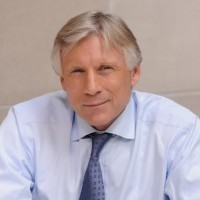On May 3, 2025, Lee C. Bollinger, First Amendment scholar, President Emeritus of Columbia University, and CGFoE Founder, published an article titled “Universities Deserve Special Standing.” Earlier that week, in another take on the current challenges to academic freedom, Bollinger joined a group of former presidents of major universities for an online discussion, “Universities Under Attack.”
Writing for The Atlantic, Lee C. Bollinger interrogates the role of academic institutions through the lens of the First Amendment. “[Universities] are every bit as vital to our society as the political branches of government,” he states, “or quasi-official institutions such as the press (often even referred to as the ‘fourth branch’ of government).”
Should universities have special standing similar to that of the press? Bollinger argues they should. Turning to Abrams v. United States (1919), Sweezy v. New Hampshire (1957), The New York Times v. Sullivan (1964), and The New York Times v. United States (1971), he underscores, “Universities, as institutions, are the embodiment of the basic rationale of the First Amendment, which affirms our nation’s commitment to a never-ending search for truth.”
When is the right moment for universities to make their case in courts? To Bollinger, that moment might be now: “In times of high crisis, one can often find the opportunities to delineate more sharply our doctrines and values.” Harvard’s lawsuit against the Trump administration can be one such opportunity.
Read the full article here.
On May 1, 2025, the New University in Exile Consortium hosted a discussion on the attacks against universities and ways they can defend academic freedom.
Lee C. Bollinger shared the panel with other former presidents of major universities: Lisa Anderson, former President of American University in Cairo; Nicholas Dirks, former Chancellor of the University of California, Berkeley; and Michael Ignatieff, Former Rector and President of Central European University in Budapest and Vienna. Aryeh Neier, President Emeritus of the Open Society Foundations, moderated the conversation.

